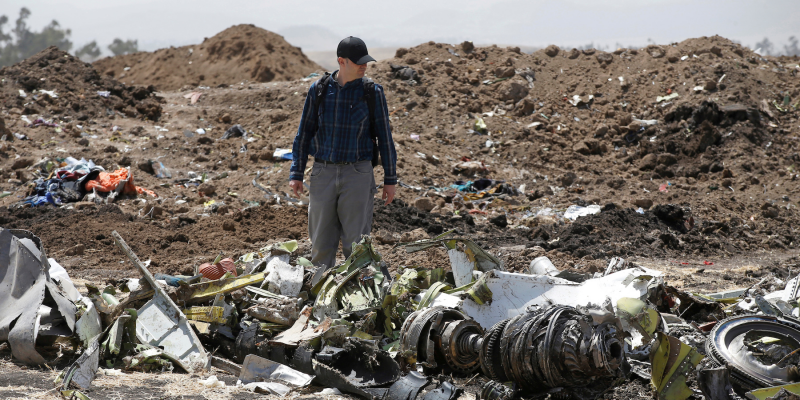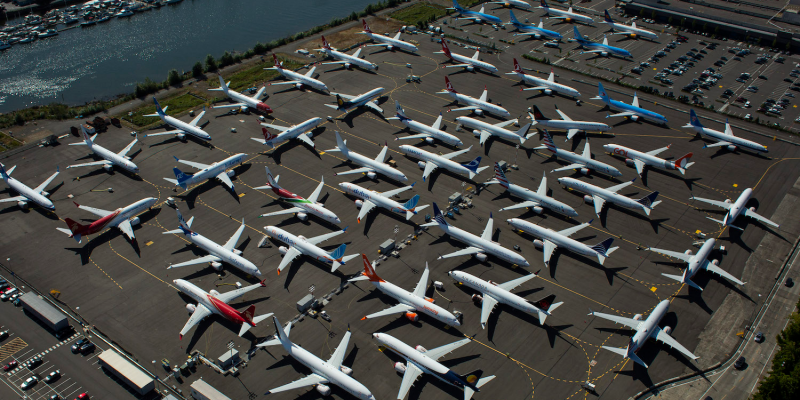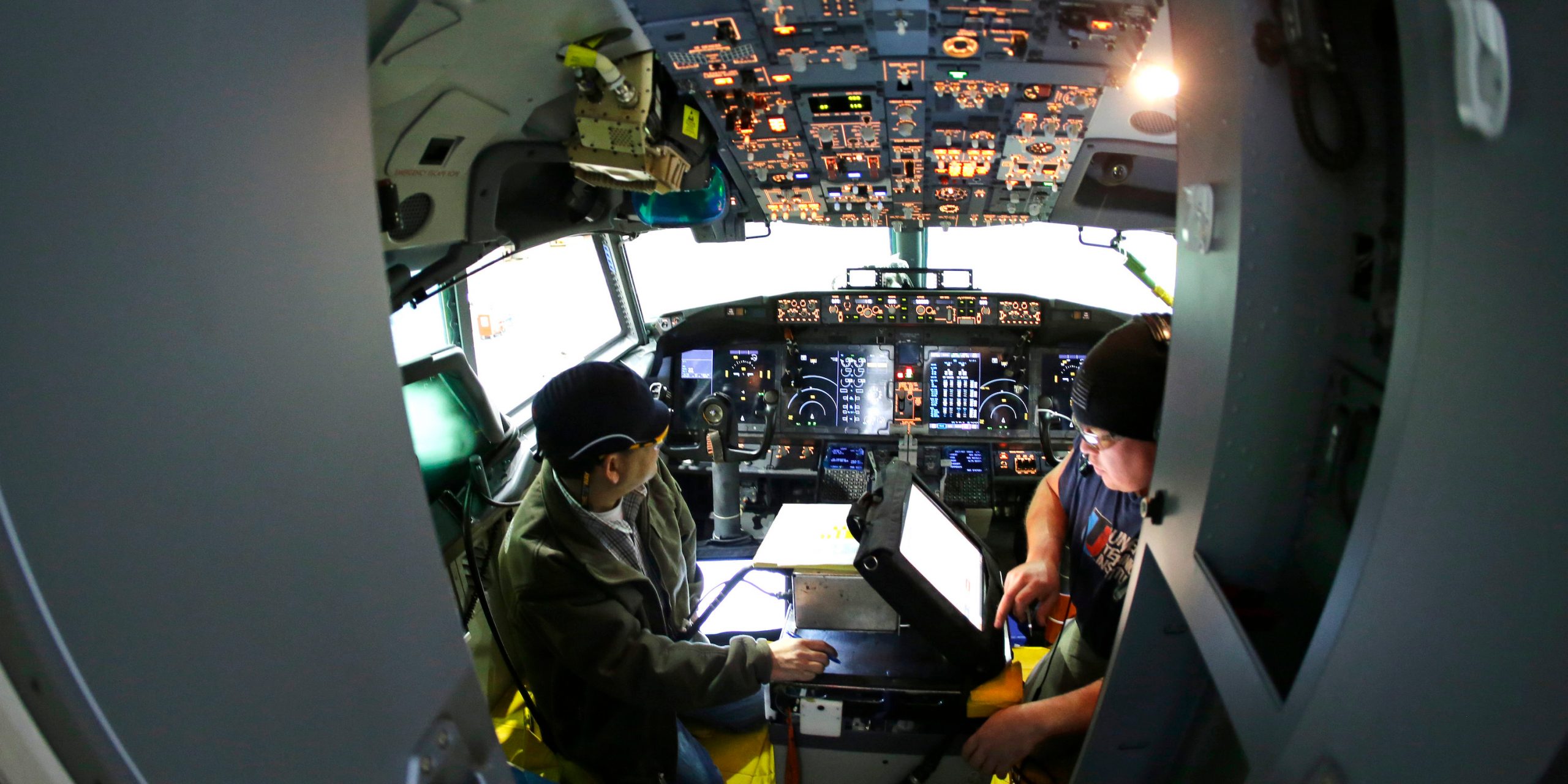- Boeing is promising three key fixes to a system blamed for the fatal crashes of its 737 Max jet, according to a leaked presentation made public by CBS News.
- It deals with changes to the Maneuvering Characteristics Augmentation System (MCAS), which was a factor in the two crashes which led to the jet’s worldwide ban from service.
- MCAS was designed to automatically push the plane’s nose down to keep the jet stable in the air. But it misfired, seemingly based on faulty data from a sensor, forcing the plane into an unstoppable dive.
- In the first of the two crashes, MCAS forced the plane’s nose down more than 20 times, bringing about a fatal dive which the pilots tried – but failed – to override.
- Boeing will now require two sensors to agree in order to activate MCAS, the presentation said. They will also include a manual override and prevent it from activating over and over.
- Visit Business Insider’s homepage for more stories.
Boeing is promising three fixes for the faulty autopilot system widely attributed as a cause of two deadly crashes by the 737 Max plane, CBS News reported Sunday.
The manufacturer told stakeholders in Seattle last week it will introduce changes to the jets Maneuvering Characteristics Augmentation System (MCAS), CBS News reported, citing documents from a presentation by the company.
The pilots in both crashes had struggled with MCAS, which was designed to automatically push the plane’s nose down to stabilize the jet.
In the first crash, suffered by Indonesia’s Lion Air, MCAS activated at least 20 times before the crash.
The software had relied on data from one of the plane's two "angle-of-attack" (AOA) sensors, which monitored the plane's position in the sky.
Both pilots tried to push back against the system by angling the plane back up dozens of times, but MCAS kept reactivating - which ultimately led to the two planes crashing and killing 346 people.

Boeing said it has addressed these problems with updated software, CBS News reported. Here are the changes they plan to make, according to the news network:
- MCAS will now rely on readings from two AOA sensors as opposed to just one in the original system. The new software will only activate if both sensors agree that the plane's nose is too high. Boeing had announced this update earlier this year.
- Pilots will be able to deactivate the system.
- When they do so, MCAS will not automatically reactivate. The original system had automatically reactivated multiple times.
Boeing also told attendees that it had flown 1,850 flight hours with the software updates, and spent more than 100,000 employee hours in engineering and test-developing the new issues, CBS News reported.
Multiple Boeing employees have spoken of the company's internal pressures to develop planes quickly and to keep manufacturing costs down.
Boeing has not yet responded to Business Insider's request for comment on the reported changes.

The company's presentation last week was meant to reassure airplane analysts, airlines, pilots, and flight attendants, CBS News reported. Regulators around the world have grounded their 737 Max jets, and pilots and flight staff have publicly expressed fears of flying them again.
The US Federal Aviation Administration (FAA) had also come under pressure for vouching for the 737 Max's safety before the two crashes. The agency now wants to dramatically change its certification process.
Internal messages exchanged by Boeing employees in 2016, which were released in October, also suggested that they had known about the MCAS' problems but misled the FAA about its dangers.
The 737 Max is expected to return to service in March 2020, though Boeing is trying to get it back in the air sooner.
- Read more:
- Boeing's CEO is about to face Congress in an inquiry on the 737 Max. Here's the complete history of the plane that's been grounded since 2 crashes killed 346 people 5 months apart.
- Internal Boeing survey hints at a culture of rushing through aircraft safety features in the years before 2 fatal 737 Max crashes
- The spotlight on Boeing and the FAA will only get hotter after the 737 Max crisis. Now global regulators are focusing on the plane-maker's newest jet.
- Boeing's 737 Max shouldn't be allowed to fly with a controversial flight-control system, an aviation regulator reportedly said in leaked emails

